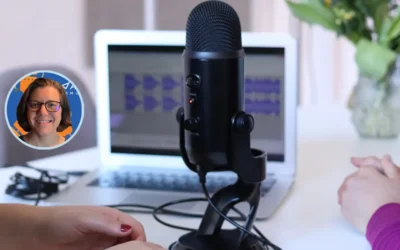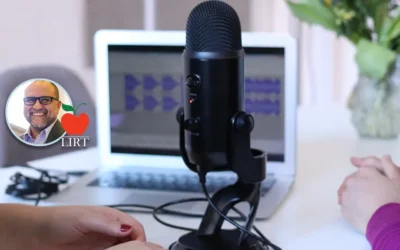Interview with the Editors:
Golub and Liu on Information & Knowledge Organisation in Digital Humanities
Lauren Hays
Koraljka Golub and Ying-Hsang Liu recently edited Information and Knowledge Organisation in Digital Humanities. This is important reading for librarians working with humanities resources. The open access version of the book is available here.
1. Please introduce yourself to our readers.
I am Koraljka Golub, Professor in Information Studies at Linnaeus University, Head of the iInstitute, Linnaeus University’s iSchool. Home page: https://lnu.se/en/staff/koraljka.golub/
2. Briefly summarize Information and Knowledge Organisation in Digital Humanities.
Information and Knowledge Organisation is an openly available, edited volume with contributions from around the globe. It explores the potential uses of, and challenges involved in, applying the organisation of information in the various areas of Digital Humanities. With a particular focus on the digital worlds of cultural heritage collections, the book also includes chapters that focus on machine learning, knowledge graphs, text analysis, text annotations and network analysis. Other topics covered include semantic technologies, conceptual schemas and data augmentation, digital scholarly editing, metadata creation, browsing, visualisation and relevance ranking. Most importantly, perhaps, the book provides a starting point for discussions about the impact of information and knowledge organisation and related tools on the methodologies used in the Digital Humanities field.
3. Why did you decide to edit this book?
In recent years, we have been witnessing a significant growth in the number of edited volumes in the field of digital humanities (DH). The one topic that seems to have been buried under themes such as digital methods or theoretical discussions of the field is the role of knowledge organisation in the digital humanities. This work aims to address that gap by providing a range of international perspectives and approaches to organising information in DH.
4. Who is the intended audience?
The book is a guide for university teachers, researchers and working professionals interested in the role of knowledge organisation in DH, and for those interested in exploring how both research and applied areas of Information Studies have traditionally intersected with or impacted studies in DH, as well as those interested in taking these developments to the next level. Each chapter provides an introductory overview of the topic under discussion, exemplified by a case study, concluding with reflections and suggestions for future work. As such, the volume will meet the needs of those who work with DH but are unfamiliar with the field of knowledge organisation and vice versa. The book could be used in postgraduate digital humanities programs, thus broadening pedagogy in DH from knowledge organisation perspectives. Similarly, it could be used as a supplementary resource in advanced information studies courses on knowledge organisation, illustrating the potential for its application in the digital humanities. With its interdisciplinary and international perspectives, this work provides a good starting point for discussions on how knowledge organisation methodologies impact digital humanities and the other way around.
5. What do you hope readers take away?
Although knowledge organisation has in the past been viewed as one of the major disciplines within the field of Information Studies, it has found applications in numerous areas because the need to organise data, information or knowledge is omnipresent. However, we have also witnessed that, in many domains of human endeavour, information is being organised ad hoc, often resulting in systems that underperform and even effectively prevent access to data, information and knowledge. In order to help ensure that the best solutions are found for knowledge organisation in the digital humanities, it is important to bring the two communities of research and practice together, to explore potential solutions and jointly address challenges. This book attempts to achieve that by providing state-of-the-art examples of interdisciplinary projects and case studies while also discussing the challenges and suggesting a future agenda. Our hope is that this volume helps set the stage for evolving knowledge organisation in DH into a truly transdisciplinary approach that seamlessly harnesses the synergies of its component parts.
6. Since technology is always changing are there any additional topics that you would add to an updated edition?
As an edited volume of invited chapters, the book provides but a limited snapshot of international perspectives on a sample of topics from knowledge organisation in digital humanities. Examples of themes that could be more represented are automated methods and techniques such as entity linking in natural language processing or deep learning models for semantic representations. User perspectives in information interface design and in evaluation are also underrepresented. Finally, we would have liked to see more of humanities-driven knowledge organisation research rather than vice versa. Perspectives from Africa and South America are sadly absent.
Is there anything else you would like to share?
On a final note, editing an interdisciplinary volume can be challenging as a result of different terminologies, research paradigms and writing styles; we have gained immensely from this work and learnt how to further widen our horizons inherited from our own disciplinary backgrounds. It is our wish that this book provides the same inspiration for the reader and sparks new interest in joining forces to devise and enable transdisciplinary approaches to knowledge organisation in the digital humanities.
Lauren Hays
Dr. Lauren Hays is an Assistant Professor of Instructional Technology at the University of Central Missouri, and a frequent presenter and interviewer on topics related to libraries and librarianship. Please read Lauren’s other posts relevant to special librarians. Take a look at Lucidea’s powerful integrated library systems, SydneyEnterprise, and GeniePlus, used daily by innovative special librarians in libraries of all types, sizes and budgets.
Never miss another post. Subscribe today!
Similar Posts
Interview with Susannah Barnes about the SLA Data Community
Susannah Barnes is the Co-Lead of the Data Community for the Special Libraries Association. If you work with data in any capacity, this interview will be of interest to you.
Interview with Victor Baeza about ALA’s Library Instruction Round Table
Interview with Victor Baeza, President of LIRT, about how it benefits from and supports special librarians whose roles involve teaching or training.
Interview with Eugene Giudice, SLA Treasurer
Interview with SLA’s Treasurer about the future of the special library profession and how the Special Libraries Association can benefit librarians
Interview with Cara Marcus on Transportation Librarianship and SLA
Interview with Cara Marcus, the president of the Special Libraries Association (SLA) transportation community about transportation libraries and SLA
Hosting service
Enjoy all of the benefits of your Lucidea solution with secure, reliable, stress free hosting
Programs & incentives
No matter your size or budget, we’ve got you covered, today and tomorrow




Leave a Comment
Comments are reviewed and must adhere to our comments policy.
0 Comments